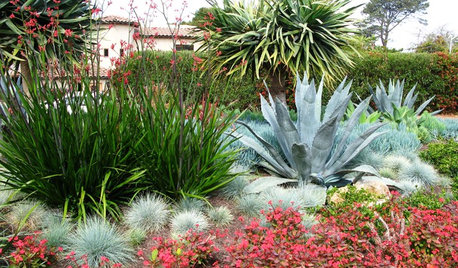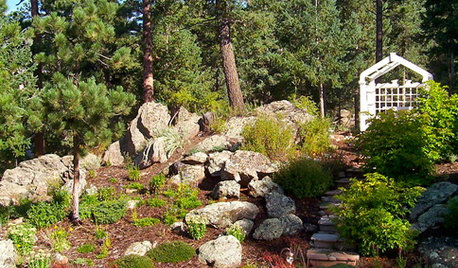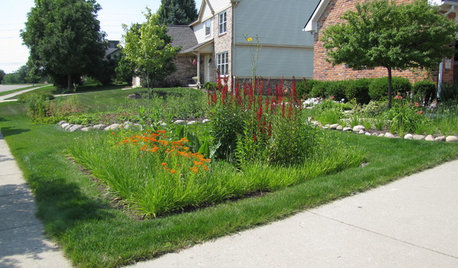Soil test results - now what?
lincann
10 years ago
Related Stories

GARDENING GUIDESHow to Stop Worrying and Start Loving Clay Soil
Clay has many more benefits than you might imagine
Full Story
GARDENING GUIDESGrow a Beautiful Garden in Alkaline Soil
Got alkaline soil? Learn how to manage it and the many beautiful plants that will thrive in this ‘sweet’ soil
Full Story
GARDENING GUIDESGardening Solutions for Dry, Sandy Soils
Has your desert or beachy site withered your gardening creativity? Try these ideas for a beautiful, easy-care landscape
Full Story
FARM YOUR YARDHow to Get Good Soil for Your Edible Garden
The nutrients in your soil feed the plants that feed you. Here are tips on getting it right — just in time for planting season
Full Story
GARDENING GUIDESGardening Solutions for Heavy Clay Soils
What’s a gardener to do with soil that’s easily compacted and has poor drainage? Find out here
Full Story
COLORSpeed-Dial Color Selection to Get the Best Result
You’ve belabored your color decisions and are still stuck. Here is how to evaluate your space and make choices that are right for you
Full Story
HOUZZ TOURSHouzz Tour: Battling the Tides Results in a Wondrous House on the Water
A complex construction effort pays off big-time with unobstructed views of Blue Hill Bay in Maine
Full Story
GARDENING GUIDESGet the Dirt on Your Garden’s Soil
Understand how your soil supports your plants so you can ensure your garden’s success
Full Story
GARDENING GUIDESHave Acidic Soil in Your Yard? Learn to Love Gardening Anyway
Look to acid-loving plants, like conifers and rhododendrons, to help your low-pH garden thrive
Full Story
LANDSCAPE DESIGNHow to Shape a Rain Garden and Create the Right Soil for It
Learn how to grade, lay out and amend the soil in your rain garden to support your plants
Full StoryMore Discussions



Slimy_Okra
lincannOriginal Author
Related Professionals
Brentwood Landscape Architects & Landscape Designers · Norwood Landscape Contractors · Azalea Park Landscape Contractors · Dallas Landscape Contractors · Fort Atkinson Landscape Contractors · Gresham Landscape Contractors · Madera Landscape Contractors · Riverview Landscape Contractors · Rochester Landscape Contractors · Sun Valley Landscape Contractors · Austin Decks, Patios & Outdoor Enclosures · Lebanon Decks, Patios & Outdoor Enclosures · Miami Decks, Patios & Outdoor Enclosures · Northbrook Decks, Patios & Outdoor Enclosures · Palmetto Decks, Patios & Outdoor EnclosuresSlimy_Okra
Kimmsr
Slimy_Okra